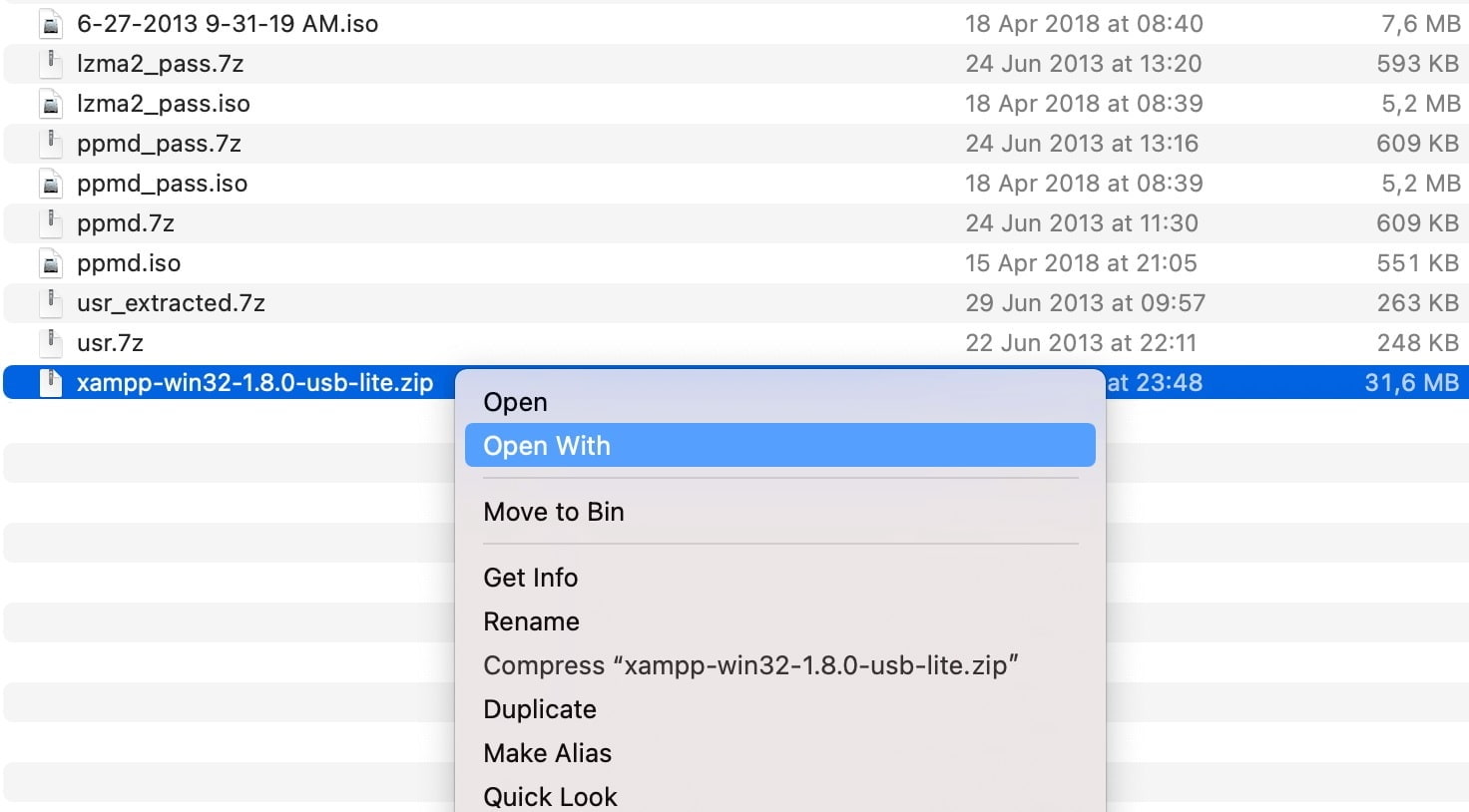
- How to run a zip file on a mac for free#
- How to run a zip file on a mac install#
- How to run a zip file on a mac archive#
- How to run a zip file on a mac windows 10#
- How to run a zip file on a mac trial#
This changes the command-prompt location to your desktop. Once Terminal is open, type “cd Desktop/” and press Enter. To open it quickly, launch Spotlight by pressing Cmd-Space, type “terminal” in the search field that opens and press Return. Terminal is located in the Utilities folder in Finder.

To make navigating around Terminal easier, find the folder containing the documents you want to compress and drag them onto your desktop. On a Mac computer running MacOS Big Sur or later, you can use Terminal to quickly create a password-protected zip file.
How to run a zip file on a mac archive#
To create unprotected zip files, open Archive Utility, then go to Preferences and change the archive format to zip. Mac computers have their own program for creating zip files, but there’s no option to add a password.
How to run a zip file on a mac trial#
It’s also very popular and is free during the trial period. When you click “OK,” the app will zip and password-protect the files you selected.Ī third option is 7-Zip. Select the Zip format and click the “Set Password” option. Alternately, you can right-click files on your computer and select “Add to Archive” to launch WinRAR. Navigate to the ones you want to zip up and click the “Add” button for each one. When you open WinRAR, it displays a list of files and folders.
How to run a zip file on a mac install#
Setting a password is also very easy.įirst, download and install WinRAR. WinRAR is another popular utility that offers a free trial period.

How to run a zip file on a mac for free#
You can download and install WinZip for free for a few weeks before you’re asked to pay for it. WinZip is a very popular app for password-protecting zip files.
How to run a zip file on a mac windows 10#
There is a way to encrypt folders on Windows 10 (except the Home edition) using EFS (Encrypted File System), but these aren’t zip files, and there are three big problems with this method: To set a password on your zip files, you’ll need to get a third-party app. Windows 10 has a native utility for making Zip folders, but it doesn’t have an option for password protection. When someone does get the password, they have access to the file - and you will never know about it. Just as importantly, there is no such thing as two-factor authentication for zip files. They can put it on their own computer and then they have all the time in the world to work on it, without detection or interruption. That’s a lot different from someone who has a zip file in their personal possession. Servers have safeguards in place so that if someone is trying to use a brute force attack to crack the password, the network admins can take corrective measures to stop the attack. Cracking the password on a zip file is a lot easier than cracking the password on a web server or an email server. The other part is the strength of your password. Fortunately, the major zip utilities support this level of encryption.Įncryption is just part of the equation.

There are currently two standard levels of encryption for zip files, 128 and 256 bits, with 256-bit encryption far superior to the 128-bit version. There are two levels of security on a password-protected zip file: the encryption security and the password. They just have to download the right (free) software. Before using zip files, however, there is one thing you need to keep in mind: anyone can crack open a zip file if they have the motivation to do so. When someone wants to access the contents inside, they just have to enter the password. You gather your files and folders together, select a password, encrypt them, and they’re put in a single, compressed folder. The essential technology behind zip files has been around for decades. While the technology behind them is quite old, and they don’t have the security required to protect extremely sensitive information, they’re great for compressing and sharing large amounts of data in easy-to-transport folders.
:max_bytes(150000):strip_icc()/CompressoptioninFinderdrop-downmenu-a5c7657118274ef794ee63bd0c1695db.jpg)
Zip files are a fast and easy option when you want to protect files from being accessed by casual users.


 0 kommentar(er)
0 kommentar(er)
